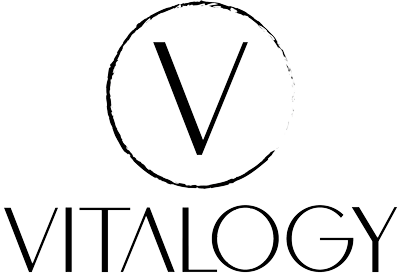When it comes to modern wellness, both integrative and holistic medicine aim to treat you as a whole person, and not just your symptoms. They recognize that physical health is deeply connected to your emotional, mental, and even spiritual well-being. However, the way each approach interprets and treats these connections can differ.
At Vitalogy Health and Integrative Medicine in Denver, we specialize in blending modern science with time-tested healing methods. Understanding the distinction between integrative and holistic care can help you make informed choices about your health journey. In this article, we break it all down.

What is integrative and holistic medicine?
Integrative medicine
Integrative medicine combines conventional Western treatments with complementary therapies to promote optimal health and wellness. You may receive prescription medications, lab tests, or imaging studies, in addition to acupuncture, counseling, or IV therapy. Integrative care is highly collaborative, often involving multiple specialists who create a unified treatment plan tailored to your specific needs and lifestyle. The goal is to not only address the root cause of illness but also to enhance overall wellness and prevent future issues.
Holistic medicine
Holistic medicine is centered on the concept of treating the whole person: mind, body, spirit, and social connections. It doesn’t separate physical symptoms from emotional or spiritual ones, and it emphasizes your body’s innate ability to heal itself. Treatments often focus on natural options, including herbal remedies, energy work, meditation, and lifestyle changes. Holistic medicine places a strong emphasis on personal empowerment, encouraging you to take active responsibility for your health by making daily choices that support well-being.
What are the primary differences between integrative and holistic medicine?
Philosophy of care
Holistic medicine is rooted in the belief that health is achieved when all aspects of your life (physical, emotional, spiritual, and social) are in balance. The approach is less concerned with formal diagnosis and more focused on restoring harmony across your body and mind.
Integrative medicine, meanwhile, prioritizes the use of the best available treatments from both conventional and complementary systems. It acknowledges the value of natural therapies but also uses diagnostics and pharmaceuticals when appropriate.
Treatment methods
Holistic care typically avoids conventional medications or invasive procedures unless absolutely necessary. Instead, it leans into practices like acupuncture, massage, yoga, and nutritional coaching. The goal is to make your body heal itself without medical intervention.
Integrative care blends natural and medical approaches. You might undergo surgery or take medications if needed, but your healthcare plan could also include stress-reduction techniques, hormone therapy, or peptides to support recovery and prevent relapse. The treatment toolbox is larger and guided by both tradition and evidence.

Medical collaboration
In holistic medicine, you may work with one practitioner who guides your treatment based on natural healing. This person might be a naturopath, energy healer, or holistic coach.
In integrative medicine, your care team might include a nurse practitioner, medical doctor, nutritionist, and acupuncturist, all working together to support your health from different angles. Collaboration between disciplines is a key feature of integrative care.
Goal of care
Holistic medicine seeks to integrate all aspects of your life into harmony, allowing your body to regain its health. It’s a lifestyle-focused, preventative model that values long-term wellbeing.
Integrative medicine, while also focused on prevention, often addresses acute and chronic health conditions. It seeks to optimize your body’s functioning and treat existing illnesses by combining multiple tools and perspectives.
Use of evidence and science
Integrative medicine puts a strong emphasis on scientific validation. Treatments are selected based on clinical research and real-world effectiveness, regardless of whether they originate from traditional medicine or alternative modalities.
Holistic medicine may rely more heavily on traditional wisdom, intuitive practices, or anecdotal evidence, particularly when formal research is limited.
Vitalogy: your partner in whole-person wellness
At Vitalogy Health and Integrative Medicine in Denver, we don’t force you to choose one path. Instead, we meet you where you are. Our clinic embraces the strengths of integrative medicine by combining the best of modern science, diagnostics, and pharmacology with trusted, holistic therapies. Whether you’re dealing with weight challenges, hormone imbalances, or stress, we tailor your care to your unique goals.
By understanding the differences between integrative and holistic medicine, you can make informed choices that align with your needs, values, and lifestyle. At Vitalogy, we’re here to guide you toward lasting, transformative wellness; mind, body, and beyond. Schedule your consultation today.



